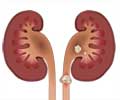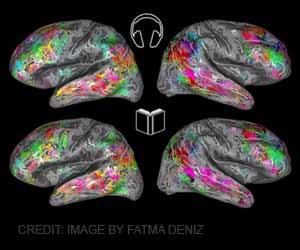People with certain blood types are more prone to blood clots or bleeding conditions, kidney stones, or pregnancy-induced hypertension.

‘A new connection between having type B blood and a lower risk of developing kidney stones discovered.’





The study confirms previously identified connections between certain blood types and the risk of blood clots and bleeding, and makes a new connection between kidney stones and having type B blood as compared to O. The discoveries may lead to new insights on how a person's blood type may predispose them to developing a certain disease. Previous studies have found that people with blood type A or B were more likely to have cardiovascular disease or experience a blood clot than people with type O blood, and that people with type O blood were more likely to have a bleeding condition. Others have suggested that people with certain blood types may be more susceptible to some infectious diseases.
"There is still very little information available about whether people with RhD-positive or RhD-negative blood groups may be at risk of certain diseases, or how many more diseases may be affected by blood type or group," says first author Torsten Dahlén, a PhD student in the Department of Medicine, Solna, at Karolinska Institutet in Stockholm, Sweden. "To help fill this gap, we used an unbiased approach to investigate the link between ABO blood types and RhD groups and more than 1,000 diseases."
Dahlén and colleagues scanned Swedish health registries with information on more than five million people for links between ABO blood type or RhD-positive or RhD-negative blood groups and more than 1,000 diseases. They found 49 diseases that were linked to ABO blood types, and one that was linked to the RhD group.
Their findings confirmed that people with type A blood were more likely to experience a blood clot and that those with type O blood were more likely to experience a bleeding disorder. They also verified that women with type O blood were more likely to experience pregnancy-induced hypertension.
Advertisement
The authors say that more studies are needed to confirm the results and to determine how different blood types or groups may increase the risk of certain diseases, or whether there are alternative explanations for these relationships.
Advertisement
Source-Eurekalert












